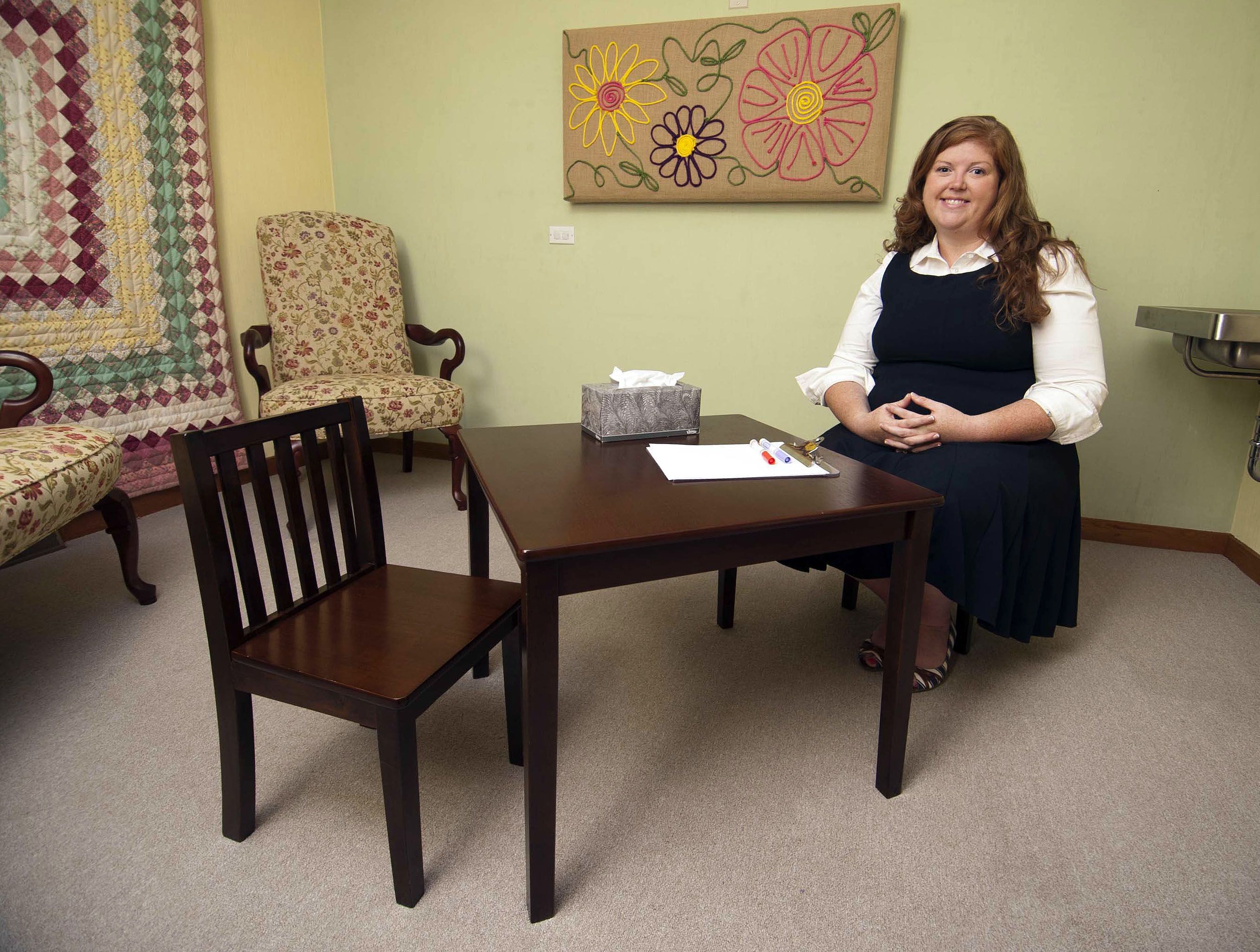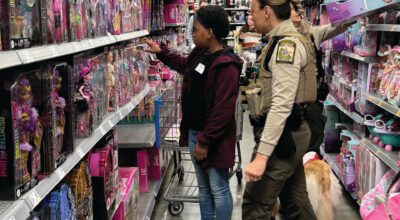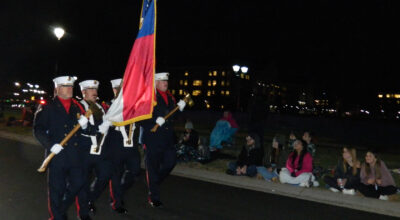Prevent Child Abuse expands its efforts
Published 12:00 am Monday, July 28, 2014
Thanks to two generous local grants, Prevent Child Abuse Rowan has hired two part-time employees, enabling the agency to serve more families than ever.
Executive director Beth Moore, who has been in her current position for five months, is still working to build awareness about the agency.
“I’m doing a lot of relationship building,” says Moore, 32. “I’m not from the area, but I’m working hard to learn the area.”
Along with added administrative duties, Moore still does all of the interviewing for suspected child abuse cases.
Thanks to Moore’s efforts, the agency has doubled its caseload in the past year. Year-to-date, its total caseload is 111, versus 54 this time last year. Moore knows that cases that are reported are only a fraction of what’s actually taking place in the community.
“We are trying to help as many children as possible,” she says.
This spring, Prevent Child Abuse Rowan received a $25,000 grant from the Woodson Foundation for a part-time in-house therapist, updated therapy room and supplies, and a $20,000 grant from the Robertson Family Foundation to fund a part-time prevention and education coordinator.
The agency’s employees now include Moore, Cassandra Rankin, family advocate; Devon Grant, education and prevention coordinator; Erin Messmer, licensed professional counselor; and Matt Freeze, director of development. Moore and Rankin’s salaries are paid by federal grants, and renewal is not guaranteed. Freeze’s salary is covered by donations.
“Once kids come here and divulge information, I want to be able to work them into therapy immediately,” Moore says. The in-house therapist position now makes that possible.
As far as the second position, Moore says, “We really felt like the next-best thing we can do is to get ahead of abuse before it starts.”
Moore is exploring the possibility of doing child abuse prevention programs in schools, as well as for churches and day care centers.
Prevent Child Abuse Rowan was formed in 2001, and its offices are now housed in the Terrie Hess House on Woodson Street, just across from Salisbury Pediatrics. Dr. Kathleen Russo, a pediatrician with the practice, volunteers her time with the agency, which she helped found in 2005.
“These cases can be extremely difficult, but my job is to help the child and family,” Russo says. “I can do that best by approaching every case without any preconceived ideas or thoughts. Everyone has to be neutral and try obtain the facts. Medically, I look at the entire child, all aspects of their health including social, physical and emotional state. I do an interview with the child, perform a complete head-to-toe examination, review their pediatric health history, perform laboratory testing if necessary as well treatment. Usually, a mental health referral is then made.”
Moore is proud of the fact that the house is a non-traumatic, child-friendly, homey environment. The lobby is decorated in bright colors, with a big-screen television, books, dolls and comfy sofas and chairs.
“When the kids say they don’t want to leave, we know we’ve done our job,” Moore says.
Every child who visits receives a blanket, stuffed animal and book to take home. Moore is always looking for donations of these items.
“We really need to reach out now,” Moore says, because she needs twice as many donations as she did last year.
During their visits, the children are also given snacks — juice boxes, cookies, crackers, and the like — and Moore’s pantry is a bit sparse at the moment.
Moore does whatever she can to help children learn to cope when they return to their homes — whether that’s giving them a blanket or a basketball or an item that interests them.
“Our goal is to ensure that each child has a happy and healthy childhood,” Moore says. “We want to turn a traumatized victim into an empowered survivor.”
Moore interviews children between ages 3 and 18, as well as young adults who may have developmental delays. Those interviews are taped for law enforcement, and are admissible in court when the child testifies. Abuse, she says, cuts across every racial and socioeconomic boundary.
“Nobody is immune to this,” she says. “We get very affluent people in our community, and we get people who’ve had rough lives. We see all types. Our goal is to stop the cycle of child abuse.”
She continues, “Children don’t know it’s bad, or it’s the only positive affect they’ve ever had, and they think that’s what they’re supposed to do.”
The agency works with families until their cases go to court, which can sometimes take several years. This is a comfort to Det. Sara Benfield.
“I really do try to be there for families and the kids I come in contact with,” says Benfield, a member of the Sheriff Office’s Special Victims Unit. “But there’s always another case. The Terrie Hess House has more capacity to continue support on that emotional level. It’s frustrating because you don’t forget about those people. You don’t.”
The agency’s services are free to families.
“We see every child, regardless of the situation,” Moore says.
Although the agency is not associated with the court system, local law enforcement or the Department of Social Services, these groups work in concert.
“They have all been so wonderful, so supportive of us,” Moore says. “It’s hard. They don’t get paid very much and they work long hours. They’re just amazing people, and we could not do it without them. The district attorney, the sheriff, the police chiefs — they’re all behind us, and that means the world to us.”
A multidisciplinary team — comprised of members from all these agencies — meet once a month to go through cases together. That way, Moore says, fewer children fall through the cracks.
Paxton Butler agrees. Butler serves as the assistant district attorney for Rowan County, and represents that office in cases.
“It’s a tremendous asset for us,” he says of Prevent Child Abuse Rowan. “It allows us all to work together. We are of the same mind about what’s going on in a case. The sharing of information allows for better interviews, better follow-up with victims, and ultimately, better results.
“It really makes cases stronger from beginning to end. It’s a tremendous tool.”
Butler likes the fact that children are interviewed at the Terrie Hess House.
“It’s so much better for the children,” he notes. “Children don’t belong at the courthouse or the police station. Everything there is designed to be intimidating. It lets us get to the truth much more efficiently.”
Benfield agrees.
“For some kids,” she says, “that’s a huge, safe haven for them. We don’t have the facilities to make them feel comfortable, in talking about something that’s so uncomfortable.”
More than anything else, Butler says, a victim’s testimony is captured in that moment — and preserved. Child abuse cases can take years to go to court.
“You can see that small little face on the screen,” Butler says. “It makes a big difference, it truly does.”
Even though many of these cases don’t go to trial, Butler says, the taped testimonies are powerful tools in his arsenal.
“If you can get a plea that’s appropriate, you can save that child from going to trial,” he says. “That’s a great result.”
For more information about Prevent Child Abuse Rowan, call 704-639-1700 or visit www.preventchildabuserowan.org . A list of the agency’s current needs is available here.
Freelance writer Susan Shinn lives in Salisbury.






